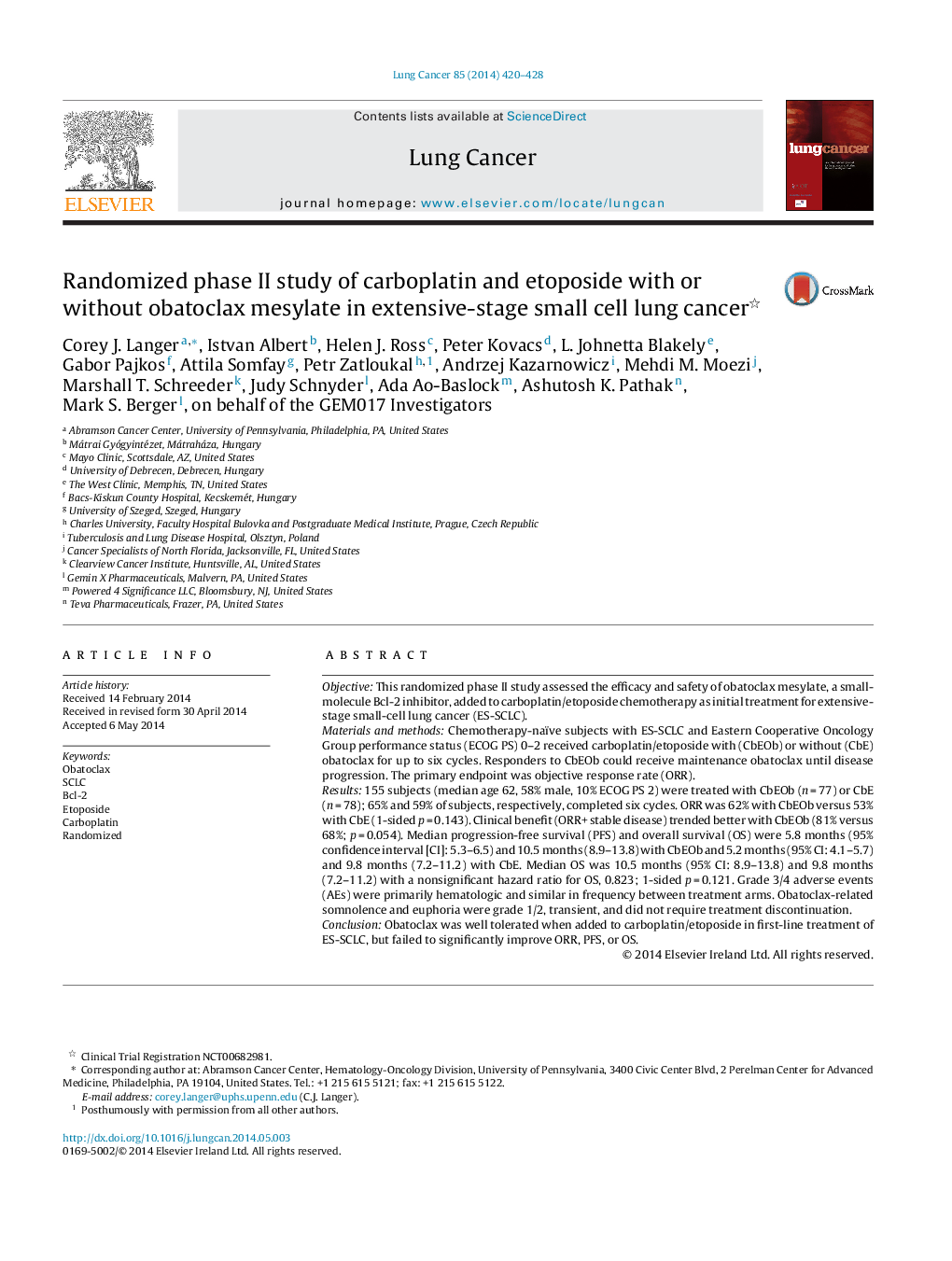| Article ID | Journal | Published Year | Pages | File Type |
|---|---|---|---|---|
| 2140909 | Lung Cancer | 2014 | 9 Pages |
•Addition of obatoclax to standard regimen failed to significantly improve outcome.•Clinical benefit (ORR + stable disease) trended better with addition of obatoclax.•The obatoclax-based regimen was well tolerated.•A biomarker-determined population may reveal potential improvement in outcomes.
ObjectiveThis randomized phase II study assessed the efficacy and safety of obatoclax mesylate, a small-molecule Bcl-2 inhibitor, added to carboplatin/etoposide chemotherapy as initial treatment for extensive-stage small-cell lung cancer (ES-SCLC).Materials and methodsChemotherapy-naïve subjects with ES-SCLC and Eastern Cooperative Oncology Group performance status (ECOG PS) 0–2 received carboplatin/etoposide with (CbEOb) or without (CbE) obatoclax for up to six cycles. Responders to CbEOb could receive maintenance obatoclax until disease progression. The primary endpoint was objective response rate (ORR).Results155 subjects (median age 62, 58% male, 10% ECOG PS 2) were treated with CbEOb (n = 77) or CbE (n = 78); 65% and 59% of subjects, respectively, completed six cycles. ORR was 62% with CbEOb versus 53% with CbE (1-sided p = 0.143). Clinical benefit (ORR+ stable disease) trended better with CbEOb (81% versus 68%; p = 0.054). Median progression-free survival (PFS) and overall survival (OS) were 5.8 months (95% confidence interval [CI]: 5.3–6.5) and 10.5 months (8.9–13.8) with CbEOb and 5.2 months (95% CI: 4.1–5.7) and 9.8 months (7.2–11.2) with CbE. Median OS was 10.5 months (95% CI: 8.9–13.8) and 9.8 months (7.2–11.2) with a nonsignificant hazard ratio for OS, 0.823; 1-sided p = 0.121. Grade 3/4 adverse events (AEs) were primarily hematologic and similar in frequency between treatment arms. Obatoclax-related somnolence and euphoria were grade 1/2, transient, and did not require treatment discontinuation.ConclusionObatoclax was well tolerated when added to carboplatin/etoposide in first-line treatment of ES-SCLC, but failed to significantly improve ORR, PFS, or OS.
